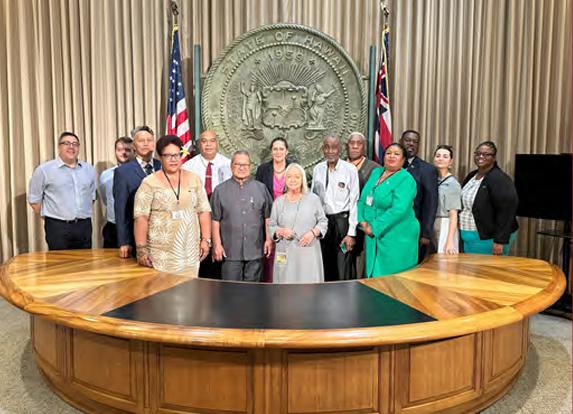What matters most to young people?
There is no one answer to that question. There are no surprises that young people are not one homogenous group with the same interests and concerns. That’s why consultation is important.
Earlier this year, the Parliament of Victoria held a youth forum where 60 young people from across the state were invited to Parliament House to tell Parliament what mattered to them. They told us that what mattered the most was:
- climate change
- mental health
- cultural inclusion
- LGBTQIA+
- First Nations issues
- employment and education
- housing and homelessness
- regional and rural issues
- young people in decision making platforms.
At the time of the youth forum, I held two part-time roles, one at the Parliament of Victoria and the other in local government at the Banyule Council. In the same month we held the youth forum, I also held a similar event at Banyule. We went through a similar process to ascertain what matters most to young people. While some issues were consistent between both (climate change, mental health, cultural inclusion, LGBTQIA+), Banyule’s young people also wanted to talk about:
- gender equality
- masculinity
- body image
- alcohol and other drugs
- disability
- neurodiversity.
Which goes to show that you can go through the same process with two different groups of young people and receive very different results. It’s safe to say that we should never assume what issues are a priority for young people.
At the Parliament of Victoria’s youth forum, a consistent message shone through – which was that “every issue is a youth issue.” Young people don’t want to be just consulted about what we might consider a traditional youth issue – they want to be consulted about everything.
Everything we do has an impact on young people, whether it’s now or into the future. We also need to acknowledge that young people are not just the leaders of the future but are already leaders in their communities, in workplaces and in social change. So, they are very much deserving of a seat at the table.
However, in consulting young people we need to consider whether our usual methods of engagement are appropriate when reaching out to younger constituents. An example of this is the Committee inquiry process. Keeping in mind that every issue is a youth issue, young people’s input is important but it’s unlikely they’ll go through the formal submission process.
The Parliament of Victoria’s Public Accounts and Estimates Committee recently recognised the importance of consulting young people on the issues of gambling and liquor regulation, and gambling harm. A youth roundtable was held as a way of facilitating conversations between MPs, members of the secretariat and young people to inform the inquiry.
We pride ourselves that our engagements are genuine and not tokenistic. We’re not interested in a photo opportunity without substance. Young people want to see genuine engagement and action. We also need to be accountable. That means maintaining communication and relationships.





